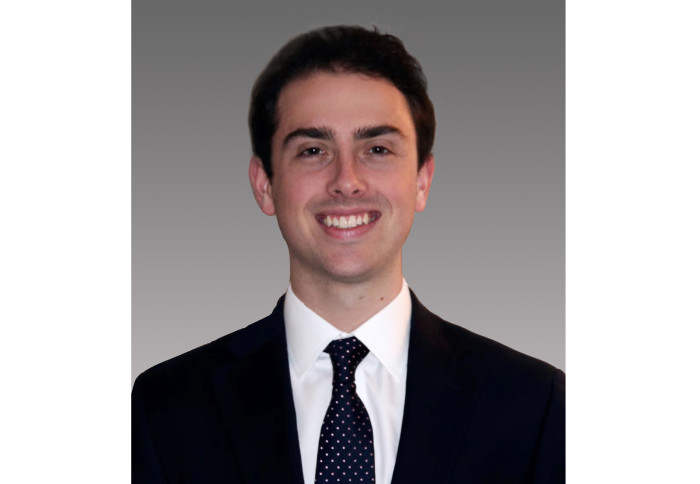Imperial student awarded national prize for ‘Best MSc Thesis in Heat Transfer’
by Sara West

Chemical Engineering student recognised with ‘Best MSc thesis’ award for his work on spectral splitting photovoltaic-thermal (PV-T) solar collectors.
Louis Martine (Chemical Engineering MSc 2019-2020) has been named winner of the ‘Best MSc Thesis in Heat Transfer’ at the official award ceremony which took place at the 17th UK Heat Transfer Conference, hosted on 4-6 April 2022 by the University of Manchester.
This prestigious prize is awarded by the UK National Heat Transfer Committee (UKNHTC) to recognise innovation, commercial impact and scientific excellence. Only one MSc thesis is selected every two years from all UK universities.
“I am honoured and privileged to win this award. I was inspired by the solar PV-T research carried out by the CEP Laboratory, where the need to develop efficient solar technologies quickly became apparent to me, since they will be essential in meeting rising renewable energy demands." Louis Martine (Chemical Engineering MSc 2019-2020)
Following a peer review lasting more than one year, Louis received the award for his innovative work on hybrid spectral-splitting PV-T solar technologies. Louis carried out his solar research in the Clean Energy Processes (CEP) Laboratory as an MSc student, co-supervised by Dr Gan Huang and Professor Christos Markides.
The role of his thesis, ‘Fundamental Approaches to the Optimisation of Spectral Splitting Fluids in Next Generation PV-T Technology’, was to provide a more coherent understating of how spectral splitting fluids work on the atomic scale and how to search for suitable candidates in a more focused way. Louis’ work proposed a breakthrough methodology to identify fluid optical filters that significantly outperform current standards, aiming to develop the next-generation high-performance hybrid solar collectors.
Professor David Reay, Chairman of the Awards Committee, said in the award letter: “The award is in recognition of this outstanding MSc Thesis project in which the ‘spectral splitting’ concept has been applied to concentrated PV-T solar collectors to enable the delivery of useful heat at much higher temperatures, while not sacrificing the electricity output or damaging the PV cells.”
Commenting on his award, Louis said: "With solar energy being the overwhelmingly largest renewable source, I felt compelled to contribute to research in this area.
"It has been a pleasure and inspiration to work with Dr Gan Huang and Professor Christos Markides, who have provided me with valuable and dedicated guidance. I am thrilled to add to the extensive list of achievements awarded to the CEP Lab. I hope I may continue to have the opportunity to innovate in such future technologies.”
Acknowledgements
This work was supported by the UK Engineering and Physical Sciences Research Council (EPSRC) [grant numbers EP/M025012/1, and EP/R045518/1], and by the Royal Society via an International Collaboration Award 2020 [grant number ICA\R1\201302]. The team would also like to thank UK company Solar Flow Ltd.
Article supporters
Article text (excluding photos or graphics) © Imperial College London.
Photos and graphics subject to third party copyright used with permission or © Imperial College London.
Reporter
Sara West
Communications Division